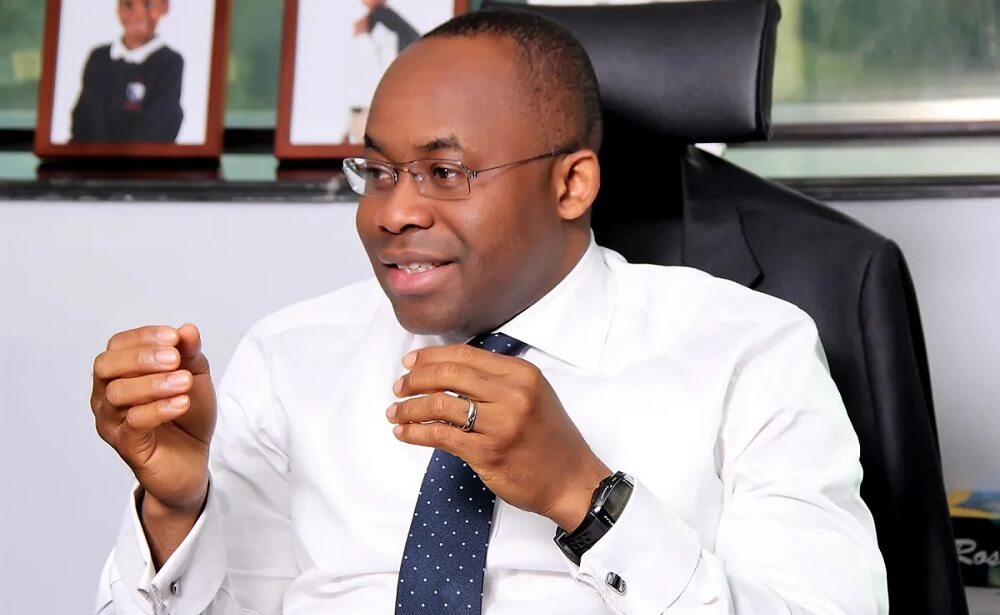INTERVIEW: Why We Are Upgrading Healthcare Institutions To World Class Medical Centres–Uche Orji, NSIA Boss
The Managing Director/Chief Executive Officer, Nigerian Sovereign Investment Authority, Mr Uche Orji spoke with THE WHISTLER shortly after the Authority sealed a significant healthcare expansion agreement with three state govts, five Federal Medical Centres. Orji spoke on the significant of the agreement and how it would impact the healthcare sector in Nigeria.
Can you take us through the agreements that were signed by the NSIA with these three state govts and five Federal Medical Centres?
Advertisement
The Authority through its NSIA Healthcare Development and Investment Company (NHDIC) entered into eight collocation agreements in total.
This will include Lease and Collaboration agreements with five Federal Medical Centres and three State Governments under phase one of the expansion
The state governments are Enugu, Kaduna and Kwara states while the selected, medical centres include Abubakar Tafawa Balewa University Teaching Hospital Bauchi, Usman Dan Fodio University Teaching Hospital, Sokoto, Federal Medical Centre Asaba, Delta, University of Uyo Teaching Hospital, Akwa Ibom and University College Hospital Board of Management. Oyo state.
The broader goal of the programme is to establish, in two phases, a portfolio of 23 diagnostic centres, seven catheterization labs and two oncology centres across Nigeria.
Advertisement
Pursuant to these agreements, funds will be deployed to build, equip, maintain, and operate catheterization labs in Kwara, Oyo, Sokoto, Bauchi and Delta states; build, equip, maintain, and operate private modern medical diagnostic centres in Enugu, Kaduna, Kwara, Akwa Ibom, Oyo, Sokoto, Bauchi and Delta states; and build, equip, maintain, and operate an oncology Centre for advanced radiotherapy treatment
Each centre will run as a joint venture between NSIA and the respective tertiary hospital to ensure timely and efficient delivery of services.
The investments are expected to build new and upgrade these institutions to modern medical centres and significantly enhance Nigeria’s ability to treat Non-Communicable Diseases (NCDs).
How would you describe the NSIA intervention so far?
So far, my engagement with the health sector has been very successful. In some ways we have been very adequate. What we have seen so far, like you all know we have built the initial project which was the cancer treatment centre in Lagos. You have heard that in the last two years, it had more than 200,000 patients and continuing and we are now actually beginning to expand the treatment centres because we are not able to keep up with the demand.
Advertisement
So, the Lagos centre is currently operating on the mantra of high-quality healthcare at a reasonable price and that extend to what we have seen. We are able to reduce the cost of cancer treatment with about below 20 per cent of what you pay when you go elsewhere and we have been able to run it on a sustainable manner. So, that has given us the confidence to now expand it into other state.
The same thing is happening with Kano where the demand also is now beginning to out sweep our capacity and Umuahia as well. The situation with the sit-at-home on Mondays has affected us a little bit but beyond that, our operations are extremely cool.
So, it is just gone beyond cancer and diagnosis and that one includes like Cardio, kidney treatment which is of significant demand in Nigeria.
This is all baby steps as we expand, because the management team is a home groom operating and management team, we hire people, we train, we try the module of outsource in the management team.
What is the projected cost of these facilities?
It depends, each of them requires some level of investment. The diagnosis centres are under $5m, the cancer centres are worth between $12m and $20m depending on the level on infrastructure. So. each of this will be accessed and also, we buy substantial working capital because we realize that what makes most of these centres succeed is just not having enough capital to succeed and to keep it going. So, these investments include working capital which is necessary to keep the centres going. Not to forget we are hiring our own therapists, doctors and oncologists working alongside partner s we are working with.
What are NSIA plans to sustain medical practitioners to avoid situations of brain drain?
Advertisement
I really do not know if I can address that question, but I will tell you two things: We have the right investment, we have the right equipment, we provide the right training and I don’t think we have lost anyone to one of these excursions outside the country, No. I am proud of this because the NSIA runs these things with the private sector.
When will these centres start running?
We have to start with the base, doing the procurement of the design then we start construction. When we go through that procurement process which is the next phase of work, the negotiations take time, procurement takes time, but usually the actual procurement don’t take time. I think when we did the cancer centre in LUTH, we finished the construction in nine months; the one in Umuahia was similar, so they don’t take time.



